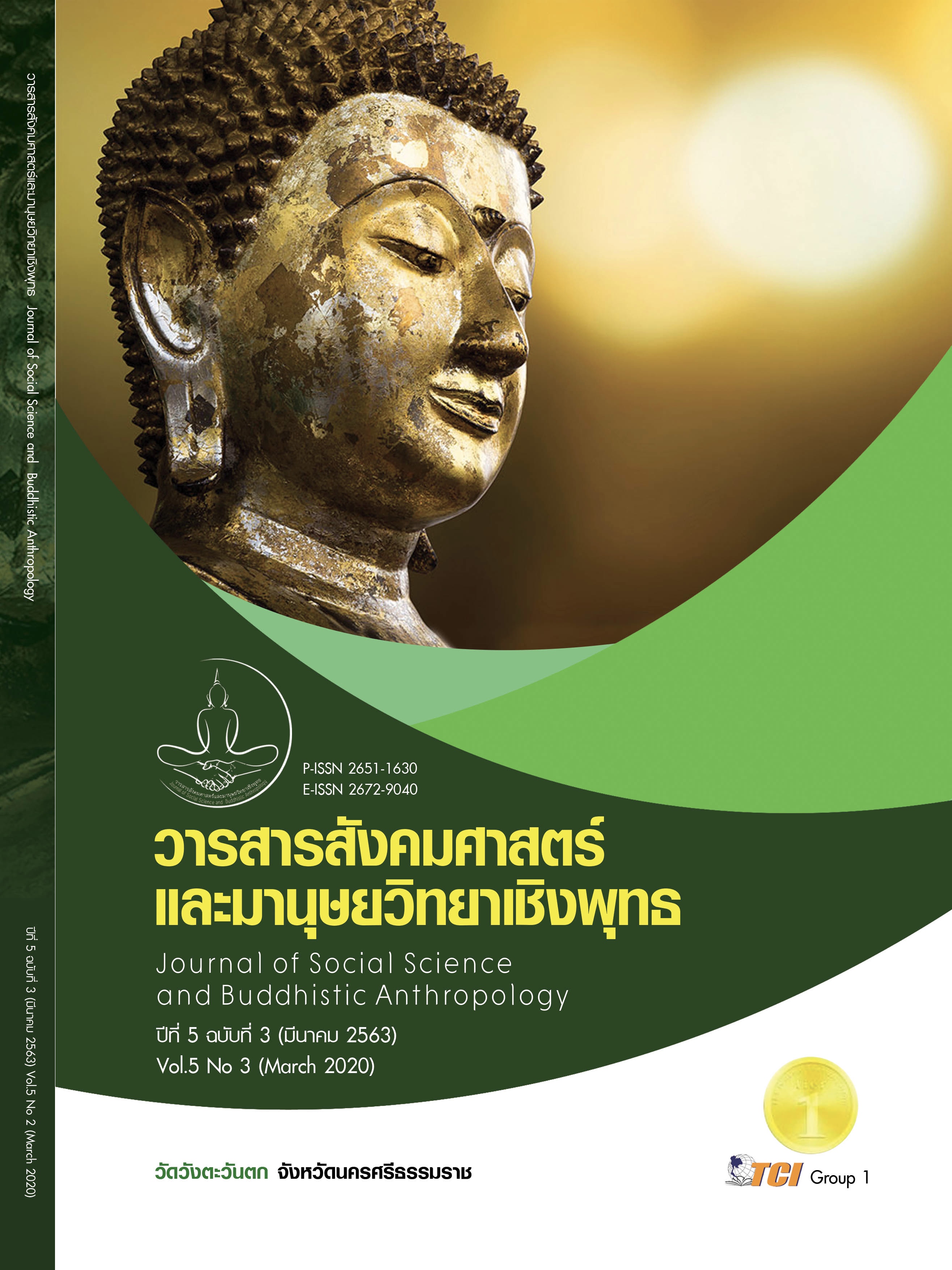THE DECISION MODEL AFFECTING TO USE OF SOLAR CELL OF INDUSTRIES IN BANGKOK METROPOLITAN ADMINISTRATION AND SUBURB
Keywords:
Decision Model, Using, Solar Energy, PerformanceAbstract
The objectives of this study were to study 1) Acceptance and decision-making process for solar energy use of an establishment 2) Performance of an establishment that chooses solar energy 3) Examine the decision model for choosing solar workplaces of the establishment. In Bangkok and perimeter By using the integrated research methodology between quantitative research and qualitative research The population studied is the establishment of a juristic person registered with the Department of Business Development. Ministry of Commerce The samples were executives / managers of establishments. Calculate sample size using the formula of Taro Yamane for 400 people. Use the specific selection method. By using questionnaires to collect data and Qualitative research The key informants were 9 academics involved in solar electricity systems by in-depth interviews. The tool used was interview form. The statistics used for data analysis were descriptive statistics and reference statistics. Which consists of percentage, average, standard deviation And multiple regression analysis. The results found that when considering the Multiple Correlation Coefficient with techniques step-by-step (S.E. = 0.380). Prediction standards from 10 predictive variables found that 6 variables enter the equation by prioritizing as follows possibility to buy in the future (β = 0.227), State policy (β = 0.192), Product attention (β = 0.174), expectation of use (β = 0.172), product knowledge (β = 0.137) and social influence (β = 0.117) together can predict variance of the performance of the enterprises in Bangkok and perimeter at 76.50% with statistically significant at 0.05 (R2 = 0.765)
References
กรมพัฒนาธุรกิจการค้า กระทรวงพาณิชย์. (2561). สถานประกอบการที่จดทะเบียนนิติบุคคลกับ กรมพัฒนาธุรกิจการค้า กระทรวงพาณิชย์. เรียกใช้เมื่อ 29 มกราคม 2561 จาก https://www.dbd.go.th/more_news.php?cid=71
คณะกรรมการกำกับกิจการพลังงาน. (2557). แผนพัฒนากำลังผลิตไฟฟ้าของประเทศ พ.ศ.2555-2573. เรียกใช้เมื่อ 29 มกราคม 2561 จาก https://www.erc.or.th/
ไชยยันต์ ถาวระวรณ. (2555). ศึกษาพลังงานทดแทนสำหรับงานอุตสาหกรรมในอนาคต. วารสารการศึกษาและการพัฒนาสังคม มหาวิทยาลัยบูรพา, 8(2), 10-14.
นภดล พันธุ์พานิช. (2561). กระบวนการเชิงกลยุทธ์ของธุรกิจระบบอัตโนมัติที่อำนวยความสะดวกแก่ผู้สูงอายุของวิสาหกิจขนาดกลางและขนาดย่อมสำหรับการเปลี่ยนแปลงสู่สังคมผู้สูงอายุในประเทศไทย. วารสารวิจัยมนุษย์ศาสตร์และสังคมศาสตร์ มหาวิทยาลัยเวสเทิร์น, 4(2), 170-185.
พัชรินทร์ แซ่จัน. (2559). การประยุกต์ใช้พลังงานแสงอาทิตย์สำหรับขับเคลื่อนระบบทำความเย็นแบบดูดซึมในประเทศไทย. วารสารวิชาการพระจอมเกล้าพระนครเหนือ, 26(3), 533-541.
วราภรณ์ แห้วเพ็ชร. (2555). การศึกษาความเป็นไปได้ของเซลล์แสงอาทิตย์ชนิดฟิล์มบาง คอปเปอร์ อินเดียมแกลเลียม ไดซิลิไนด์ (CIGS) สำหรับอาคารชุดพักอาศัยในประเทศไทย. ใน วิทยานิพนธ์วิศวกรรมศาสตรมหาบัณฑิต สาขาเทคโนโลยีการจัดการพลังงานและสิ่งแวดล้อม. มหาวิทยาลัยธรรมศาสตร์.
วิชิต มาลาเวช. (2556). ชุดสาธิตการผลิตกระแสไฟฟ้าด้วยระบบพลงังานทดแทนแบบผสมผสาน. นครศรีธรรมราช: มหาวิทยาลัยราชภัฏนครศรีธรรมราช.
Philip Kotler et al. (2012). Marketing Management 12th Edition. Edinburgh Gate: Pearson Education Limited.
Kaplan & Norton. (2004). STRATEGY MAPS. Massachusetts: Harvard Business School Press.
Özsungur, F. & Hazer, O. (2018). Analysis of the Acceptance of Communication Technologies by Acceptance
Model of the Elderly: Example of Adana Province. International Journal Of Eurasia Social Sciences, 9(31), 238-247.
Rogers, Everett M. & F.Floyd Shoemaker. (2004). Communication of Innovations : A Cross Cultural Approach. New York: The Free Press.
Taro Yamane. (1967). Taro Statistic : An Introductory Analysis. New York: Harper & row.









